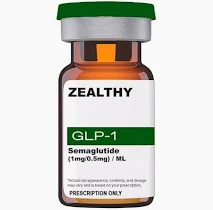
- +86-13363869198
- weimiaohb@126.com

Nov . 24, 2024 18:10 Back to list
Understanding Intermediates in Organic Chemistry and Their Role in Chemical Reactions
Understanding Intermediates in Organic Chemistry
Organic chemistry is the branch of chemistry that studies the structure, properties, composition, reactions, and synthesis of carbon-containing compounds. One of the most critical concepts in organic chemistry is the idea of intermediates. Intermediates are transient species that occur during the conversion of reactants into products in a chemical reaction. Understanding these intermediate compounds is essential for grasping reaction mechanisms and predicting the outcomes of chemical reactions.
What Are Intermediates?
Intermediates are molecules that exist temporarily during a chemical reaction. They are formed from the reactants and lead to the final products. These species are often unstable and can quickly decompose into products or revert back to reactants. Because of their fleeting nature, intermediates are usually detected using sophisticated techniques like spectroscopy and are often challenging to isolate.
Intermediates can vary widely in their structure and characteristics. They can be ions, neutral molecules, or radicals, depending on the reaction pathway. For instance, nucleophilic addition reactions often involve carbocation intermediates, where a positively charged carbon atom is highly reactive. On the other hand, some reactions may produce free radicals as intermediates, which can initiate chain reactions, particularly in radical polymerization or combustion processes.
The Role of Intermediates in Reaction Mechanisms
Understanding the role of intermediates is key to elucidating reaction mechanisms — the step-by-step sequence of elementary reactions by which a chemical change occurs. Each step in a mechanism can involve different intermediates, and mapping out these steps helps chemists to predict how different conditions (such as temperature, pressure, or the presence of a catalyst) will affect the reaction.
For example, in a simple bimolecular nucleophilic substitution (SN2) reaction, a nucleophile attacks a substrate, leading to the formation of a transition state. This transition state may be considered a type of intermediate, as it represents a point at which bonds are partially formed and broken. Conversely, in aromatic electrophilic substitution reactions, different intermediates, such as sigma-complexes, play crucial roles in determining the product distribution based on electronic and steric factors.
Classification of Intermediates
what is an intermediate in organic chemistry

Intermediates can be classified based on their electronic state and stability
. Some common types include1. Carbocations These are positively charged carbon species that are highly reactive. They usually form during reactions involving the heterolysis of a bond.
2. Carbanions Negatively charged carbon species. Carbanions are nucleophilic and can act as strong bases.
3. Free Radicals These are species with unpaired electrons and are extremely reactive, often participating in chain reactions.
4. Arenium Ions Formed during electrophilic aromatic substitutions, these intermediates help to stabilize the positive charge through resonance with the aromatic ring.
5. Peroxides Often involved in reactions requiring an oxygen transfer, these intermediates can participate in both radical and non-radical reactions.
Importance of Studying Intermediates
Investigating intermediates provides valuable insights into the kinetics and thermodynamics of reactions. By analyzing how intermediates behave, chemists can optimize reaction conditions, design better catalysts, and develop new synthetic pathways. Moreover, intermediates are crucial in pharmacology, where understanding the metabolic pathways involves studying how drugs interact with biological systems, often transforming into various intermediates before reaching their final metabolic products.
In conclusion, intermediates in organic chemistry are essential for comprehending the complexities of chemical reactions. By studying these transient species, chemists gain a deeper insight into reaction mechanisms, which is foundational for advancements in synthetic methods, drug design, and materials science. As research progresses, the tools to investigate and manipulate intermediates are continually improving, paving the way for innovations in both academic and industrial chemistry.
-
AI-Optimized CAS: 79099-07-3 Factories for High Yield
NewsAug.01,2025
-
Premium CAS 1451-83-8 Factory with GPT-4 Turbo | AI-Optimized
NewsJul.31,2025
-
Pharmaceutical Intermediates - AI-Optimized Synthesis & Purity
NewsJul.31,2025
-
Top CAS: 79099-07-3 Factories & Wholesale Supplier from China
NewsJul.30,2025
-
High-Quality GS-441524 for White Liquid Type Factories & Suppliers
NewsJul.29,2025
-
High-Quality Pharmaceutical Intermediates for Sale – Reliable Supply
NewsJul.29,2025